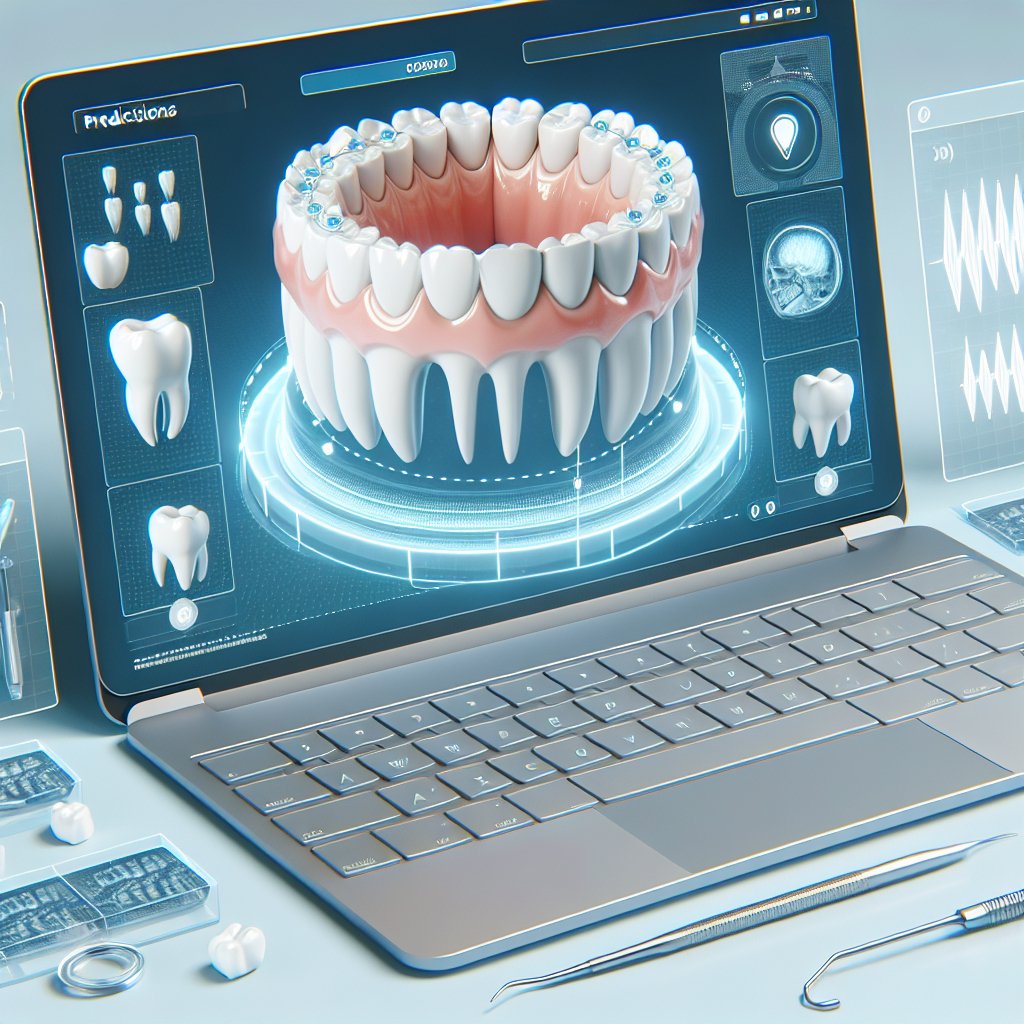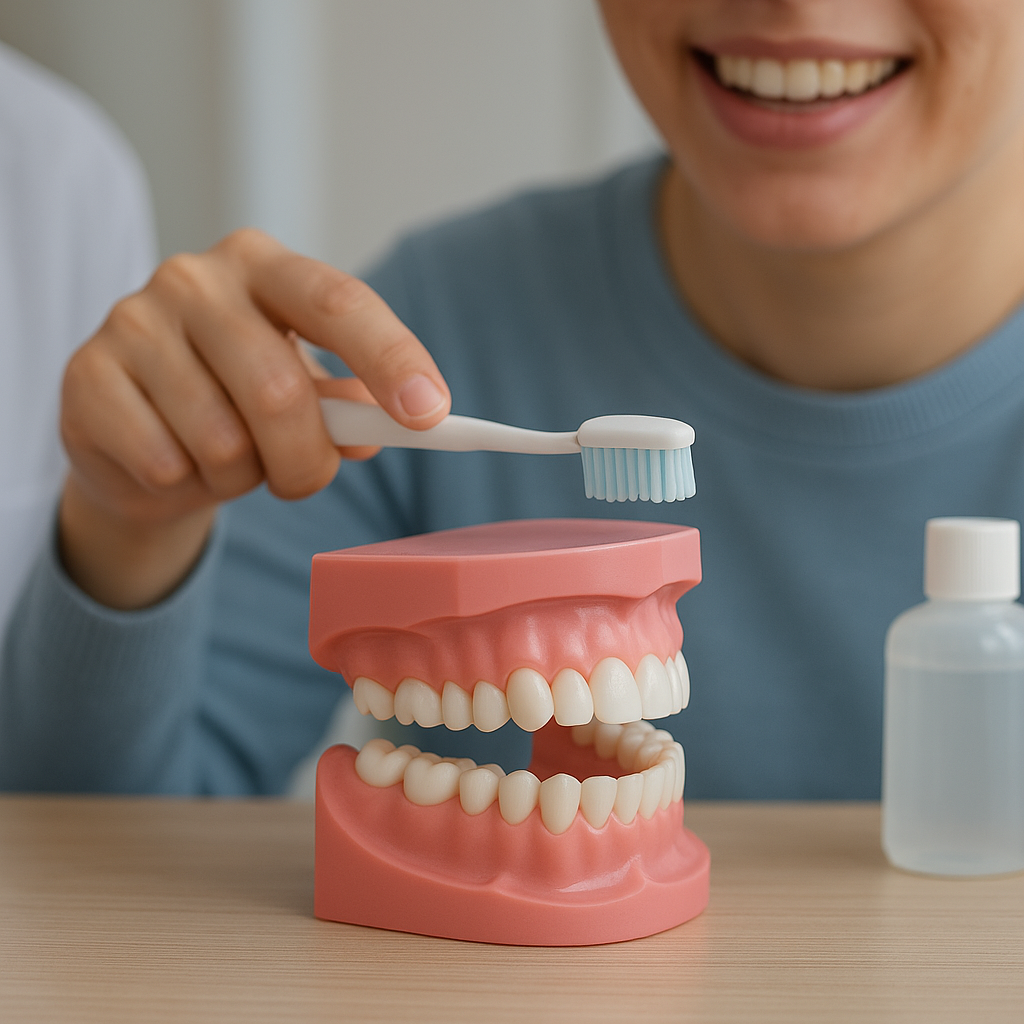The role of AI in predicting oral health outcomes is becoming increasingly significant as technology advances and integrates into various fields of healthcare. Artificial intelligence (AI) has the potential to revolutionize dentistry by providing tools that enhance diagnostic accuracy, improve treatment planning, and ultimately lead to better patient outcomes. This article explores the various applications of AI in dentistry, its benefits, challenges, and the future of oral health prediction.
Understanding AI in Dentistry
Artificial intelligence refers to the simulation of human intelligence processes by machines, particularly computer systems. In the context of dentistry, AI encompasses a range of technologies, including machine learning, natural language processing, and computer vision. These technologies can analyze vast amounts of data, recognize patterns, and make predictions based on historical information.
One of the primary applications of AI in dentistry is in the analysis of dental images. Traditional methods of diagnosing dental issues often rely on the expertise of the dentist, which can be subjective and prone to human error. AI algorithms can be trained to identify cavities, gum disease, and other oral health issues with a high degree of accuracy. By processing thousands of dental images, AI can learn to recognize subtle changes that may indicate the early stages of dental problems, allowing for timely intervention.
Machine Learning and Predictive Analytics
Machine learning, a subset of AI, plays a crucial role in predictive analytics within dentistry. By utilizing historical patient data, machine learning algorithms can identify risk factors associated with various oral health conditions. For instance, these algorithms can analyze data related to a patient’s age, dental history, lifestyle choices, and genetic predispositions to predict the likelihood of developing conditions such as periodontal disease or tooth decay.
Predictive analytics can also assist in treatment planning. By evaluating the effectiveness of different treatment options based on similar cases, AI can recommend personalized treatment plans that are more likely to succeed. This not only enhances patient care but also optimizes the use of resources within dental practices.
Benefits of AI in Predicting Oral Health Outcomes
The integration of AI into dentistry offers numerous benefits that can significantly improve patient care and outcomes. Some of the key advantages include:
- Enhanced Diagnostic Accuracy: AI systems can analyze dental images and patient data with a level of precision that surpasses human capabilities. This leads to earlier detection of dental issues and more accurate diagnoses.
- Personalized Treatment Plans: By leveraging predictive analytics, AI can help dentists create tailored treatment plans that consider individual patient needs and risk factors.
- Improved Patient Engagement: AI-powered applications can provide patients with personalized oral health recommendations and reminders, encouraging them to take an active role in their dental care.
- Efficiency in Practice: Automating routine tasks, such as data entry and appointment scheduling, allows dental professionals to focus more on patient care and less on administrative duties.
- Cost-Effectiveness: By predicting potential oral health issues before they become severe, AI can help reduce the overall cost of dental care for both patients and providers.
Challenges and Limitations
Despite the promising benefits of AI in dentistry, several challenges and limitations must be addressed. One significant concern is the need for high-quality data to train AI algorithms effectively. Inaccurate or biased data can lead to flawed predictions and potentially harmful outcomes for patients.
Additionally, there is a need for dental professionals to be adequately trained in using AI tools. Without proper understanding and integration into clinical practice, the potential of AI may not be fully realized. Furthermore, ethical considerations surrounding patient data privacy and consent must be prioritized to ensure that AI applications are used responsibly.
The Future of AI in Oral Health Prediction
The future of AI in predicting oral health outcomes looks promising, with ongoing research and development aimed at enhancing its capabilities. As technology continues to evolve, we can expect to see more sophisticated AI tools that can analyze complex data sets and provide even more accurate predictions.
Moreover, the integration of AI with other emerging technologies, such as tele dentistry and wearable health devices, could further enhance patient monitoring and care. For instance, AI could analyze data collected from wearable devices that track oral health metrics, providing real-time insights and alerts to both patients and dental professionals.
Collaboration Between AI and Dental Professionals
For AI to be truly effective in predicting oral health outcomes, collaboration between technology developers and dental professionals is essential. Dentists must be involved in the design and implementation of AI tools to ensure they meet clinical needs and enhance patient care. This collaboration can lead to the development of user-friendly interfaces that allow dental professionals to easily interpret AI-generated insights and incorporate them into their practice.
Furthermore, ongoing education and training programs will be crucial in equipping dental professionals with the skills needed to leverage AI effectively. As AI continues to advance, staying informed about the latest developments will enable dentists to provide the best possible care to their patients.
Conclusion
The role of AI in predicting oral health outcomes is transforming the field of dentistry, offering new opportunities for improved patient care and outcomes. By enhancing diagnostic accuracy, personalizing treatment plans, and increasing efficiency, AI has the potential to revolutionize how dental professionals approach oral health. However, addressing the challenges and limitations associated with AI is essential to fully realize its benefits. As we move forward, collaboration between technology and dental professionals will be key to harnessing the power of AI in dentistry, ultimately leading to healthier smiles for patients around the world.




